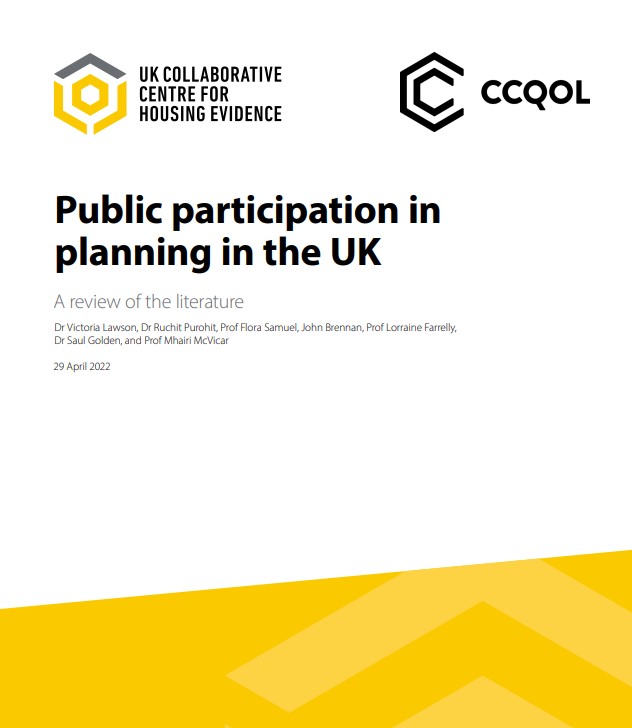Public participation in planning in the UK: A review of the literature
Despite the fact that community participation is known to have major benefits in terms of resilience and wellbeing, there is a general lack of ‘systematic empirical studies on how public participation is practiced’ (Uittenbroek et al., 2019, p.16).
Community Consultation for Quality of Life (CCQOL) is a collaborative project we’re working on with the universities of Reading, Cardiff, Edinburgh and Ulster. It’s funded by the Arts and Humanities Research Council and seeks to develop a Code of Conduct for inclusive participatory planning.
The first stage of the project is this systematic review of the literature on public participation, focusing on the UK since 2010. The review was guided by questions around how community consultation could:
- be made more impactful and effective across the diverse policy contexts of the UK
- be made more representative and inclusive, including through e-participation; and (3) form a long-term project that fosters ongoing civic debate. While each of the devolved nations has a different approach to planning and participation, the main focus of this account is on England.
Participation here encompasses consultation and engagement. There are moments during planning processes when consultation with the community is a statutory requirement, referred to here as consultation.
Engagement is about a more relationship with a community carefully built up over time. We recognise that ‘community’ itself is a highly contested word, as are many of the words used in this document.
The seven policy recommendations in this report have been distilled from the fifteen findings of the literature review.
